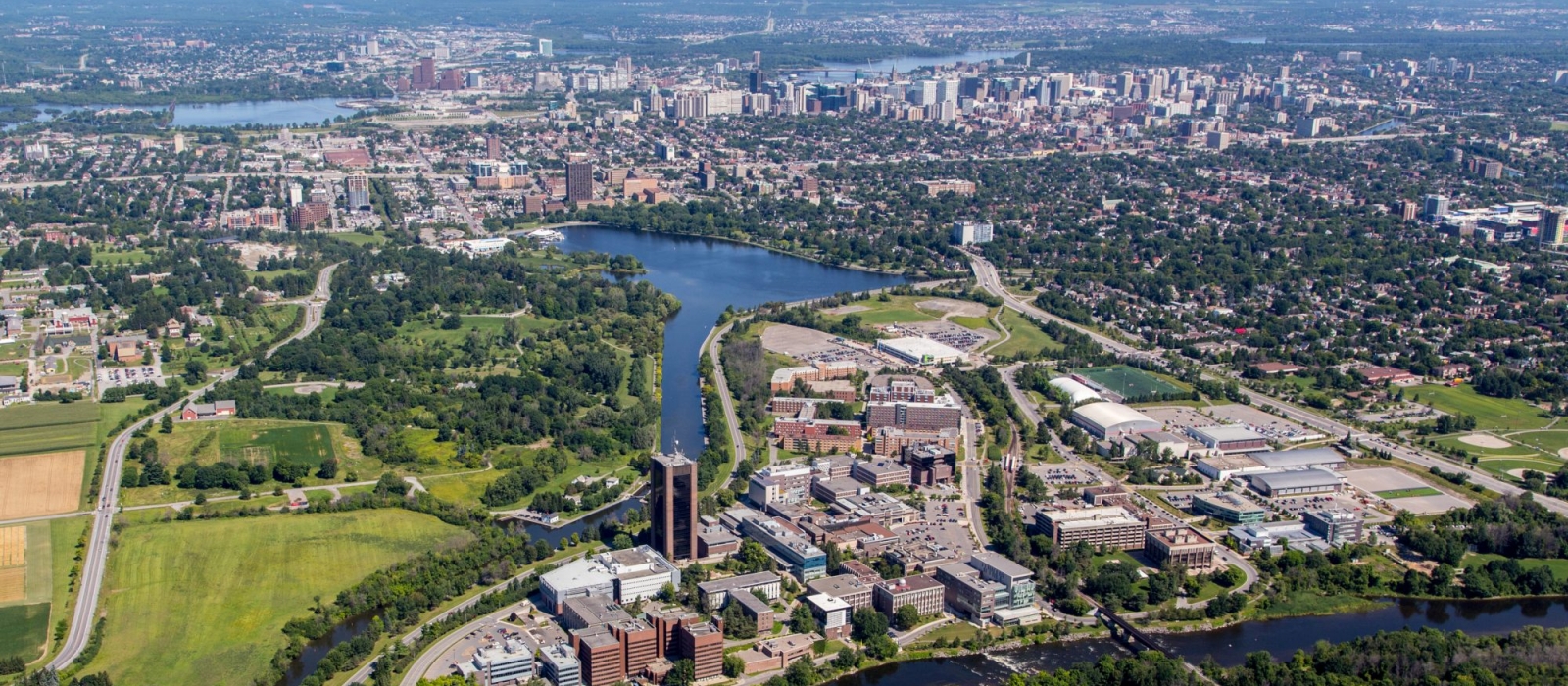Carleton University acknowledges the location of its campus on the traditional, unceded territories of the Algonquin nation. In doing so, Carleton acknowledges it has a responsibility to the Algonquin people and a responsibility to adhere to Algonquin cultural protocols.
- Why and When to Provide a Territory Acknowledgement
-
Why and When to Provide a Territory Acknowledgement
Territory acknowledgements have become commonplace in many postsecondary institutions and demonstrates respect for the traditional custodians of a particular region or area. The practice has gained popularity because it serves to remind people who are not Indigenous that they are guests in these territories, and that these territories had complex and culturally specific legal, governance, education and justice systems prior to the creation of Canada.
It serves to reframe relationships between Indigenous and non-Indigenous peoples in a way that acknowledges Indigenous people have inherent rights to their territories.
Carleton University faculty, staff and students are encouraged to acknowledge the first peoples on whose territory they are gathered when hosting events or meetings.
Acknowledging territory in the Ottawa area shows recognition and respect for the Omamiwininiwag (Algonquin people in the Algonquin language).
Territory acknowledgements appropriately take place at the commencement of conferences, workshops, public lectures, presentations and other events held at Carleton.
- Making a Territory Acknowledgment
-
Making a Territory Acknowledgment
An acknowledgement of the host territory can be shared at any point but it is most common for the host or chair of a meeting or gathering to provide this.
Algonquin Territory Acknowledgement Examples
“We/I would like to acknowledge the Algonquin nation whose traditional and unceded territory we are gathered upon today.”
“We/I would like to begin by acknowledging that the land on which we gather is the traditional and unceded territory of the Algonquin nation.”
Even more meaningful would be for the host to explain why they are making the acknowledgement. This is a practice strongly recommended by the Centre for Indigenous Initiatives.
- Algonquin Territory Acknowledgement Examples
-
Algonquin Territory Acknowledgement Examples
The following land acknowledgment is an excellent example. It was written and read by Denae Stegemen at a recent webinar.
Land Acknowledgement for Sask SAFE webinar October 20, 2020
We want to start this meeting off with a land acknowledgement. Land acknowledgments are usually given at political or academic gatherings and they are growing more common. However, there is a disturbing trend that these land or territory acknowledgements are much more for the white audience to justify or maybe soothe our racial guilt instead of the original intended purpose, to acknowledge and honour people and the Treaty agreements and unseeded lands of Turtle Island.
We do not want the land acknowledgment in our Sask SAFE meetings to just be another box to check off in our meeting agenda. We want to use this as an intentional and thoughtful way to position ourselves, to provide meaningful and thankful acknowledgment to the First Nations and Metis communities whose land we occupy. We want to prioritize individual commitments to challenge and dismantle white supremist colonial mindsets which we have internalized both collectively and individually.
We acknowledge that we live, gather, and organize on the traditional Territories of the Nehiyahwak, Nahikawe, Dakata, Lakota, Dene, and Metis peoples. We are on Treaty Six territory and acknowledge that settler relationships to both the land and the peoples of this land have been broken and misused.
As we organize around anti-racism and decolonization, we recognize the ways in which our presence on this land upholds colonialism and reproduces dispossession and violence for Indigenous people. For those of us who are settlers, we commit to working and learning more about how we can prioritize upholding conditions of the treaties that govern this land. (SURJ Toronto).
I am a third-generation settler. For most of my existence, except for about seven years, I have lived in Treaty Six territory. Acknowledging the land and Indigenous folx who have been here since time immemorial, compels me to commit to antiracist and anti-oppressive education in my work as a teacher. I commit to unlearning and examining my own internal biases and racist thoughts. I know I have caused harm, both implicitly by not speaking up and disrupting racism, and also explicitly with my own racist thoughts, words, and actions. I commit to continual research and unlearning of the harmful ways I have been socialized into white supremacy.
This interview with Hayden King is a great resource when writing your own land acknowledgment.
- Speaking Events Outside the Ottawa area
-
Speaking Events Outside the Ottawa area
For speaking engagements taking place in other parts of the Ontario or across Canada, it is important to determine which Indigenous territory you are visiting. A good source for this information is the Centre for Indigenous Initiatives at universities or colleges in the area. They often have this information on their websites.
Share: Twitter, Facebook
Short URL:
https://carleton.ca/indigenous/?p=136
